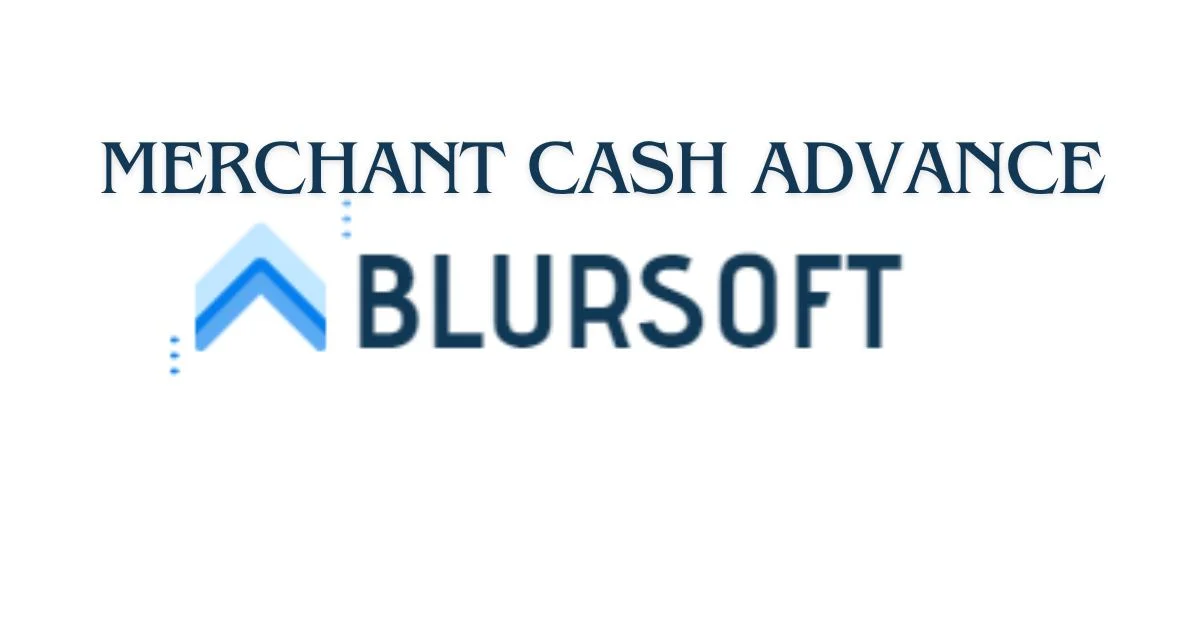BUSINESS
Compliância Unveiled: A Deep Dive into Compliance

In today’s fast-paced and highly regulated business environment, ensuring compliance with various laws, regulations, and ethical standards is paramount for organizations across industries. This comprehensive guide will delve into the intricacies of compliância, shedding light on its definition, significance, implementation, and future trends.
Introduction to Compliância
Defining Compliância
Compliância, originating from the Portuguese word “compliance,” refers to the adherence to laws, regulations, guidelines, and ethical standards relevant to a particular industry or organization. It encompasses not only legal requirements but also ethical principles and internal policies.
Importance of Compliância
Compliância plays a crucial role in maintaining the integrity, reputation, and sustainability of businesses. By ensuring adherence to regulatory frameworks and ethical standards, organizations mitigate risks, build trust with stakeholders, and avoid costly legal penalties.
The Role of Compliância in Businesses
Ensuring Regulatory Compliance
One of the primary functions of compliância is to ensure that organizations abide by laws and regulations relevant to their operations. This includes labor laws, environmental regulations, data protection laws, and industry-specific regulations.
Mitigating Risks
Compliância helps organizations identify, assess, and mitigate various risks, including legal, financial, operational, and reputational risks. By implementing robust compliance programs, businesses can detect potential violations early and take corrective actions to prevent adverse consequences.
Maintaining Ethical Standards
Ethical compliance is integral to the corporate culture of an organization. Compliância frameworks promote ethical behavior, integrity, and accountability among employees, fostering a positive workplace culture and enhancing stakeholder trust.
Also Read: All You Need To Know About Semantic Error Chapter 80
Components of Compliância
Policies and Procedures
Establishing comprehensive policies and procedures is fundamental to effective compliância. These documents outline the rules, guidelines, and protocols that employees must follow to ensure compliance with relevant laws and regulations.
Training and Education
Educating employees about compliance requirements and ethical standards is essential for fostering a culture of compliance within an organization. Training programs help employees understand their responsibilities, recognize potential compliance risks, and uphold the organization’s values.
Monitoring and Reporting
Regular monitoring and reporting mechanisms are vital for assessing the effectiveness of compliance programs. By conducting audits, risk assessments, and internal investigations, organizations can identify areas of non-compliance and implement corrective measures promptly.
Compliância in Different Industries
Healthcare
In the healthcare sector, compliance with laws such as the Health Insurance Portability and Accountability Act (HIPAA) is critical to protecting patient privacy and data security. Healthcare organizations must also adhere to regulations governing clinical trials, medical billing, and fraud prevention.
Finance
Financial institutions are subject to stringent regulatory requirements aimed at safeguarding the integrity of the financial system and protecting consumers. Compliance with laws such as the Dodd-Frank Act, Anti-Money Laundering (AML) regulations, and Know Your Customer (KYC) requirements is essential for banks, insurance companies, and investment firms.
Technology
In the rapidly evolving technology sector, compliance with data protection laws, such as the General Data Protection Regulation (GDPR) and the California Consumer Privacy Act (CCPA), is paramount. Technology companies must also address cybersecurity risks, intellectual property issues, and ethical considerations related to emerging technologies.
Also Read: Blisterata Unraveled: Causes, Symptoms, and Solutions
Challenges in Implementing Compliância
Keeping Up with Regulatory Changes
The regulatory landscape is constantly evolving, posing challenges for organizations to stay abreast of new laws and regulations. Failure to adapt to regulatory changes promptly can result in compliance gaps and legal liabilities.
Cultural Resistance
Resistance to compliance initiatives may arise from employees who perceive them as burdensome or restrictive. Overcoming cultural resistance requires effective communication, leadership commitment, and employee engagement in the compliance process.
Resource Allocation
Allocating sufficient resources, including budget, staff, and technology, is essential for implementing and maintaining robust compliance programs. Limited resources may hinder organizations’ ability to address compliance risks effectively.
Benefits of Compliância
Avoiding Legal Penalties
Compliance with relevant laws and regulations helps organizations avoid costly fines, penalties, and legal sanctions. By proactively addressing compliance requirements, businesses minimize the risk of litigation and regulatory enforcement actions.
Building Trust and Reputation
Maintaining a reputation for integrity and ethical conduct is invaluable in today’s competitive marketplace. Compliance with ethical standards and regulatory requirements enhances stakeholder trust, fosters customer loyalty, and strengthens brand reputation.
Enhancing Business Efficiency
Effective compliance programs streamline business processes, reduce operational inefficiencies, and minimize disruptions caused by compliance issues. By promoting transparency, accountability, and good governance, compliância contributes to organizational efficiency and productivity.
Also Read: The Vergando Revolution: Nanotech’s Next Big Leap
Future Trends in Compliância
Technology Integration
Advancements in technology, such as artificial intelligence (AI), blockchain, and data analytics, are revolutionizing compliance practices. Automation tools and digital platforms enable organizations to streamline compliance processes, enhance risk management capabilities, and improve decision-making.
Globalization Impact
As businesses operate in an increasingly interconnected and globalized economy, compliance with international laws and standards becomes more complex. Organizations must navigate cross-border regulations, cultural differences, and geopolitical risks to maintain compliance across multiple jurisdictions.
Continuous Improvement
Continuous improvement is essential for effective compliância in a dynamic and evolving regulatory landscape. Organizations must regularly review and update their compliance programs, incorporating feedback, lessons learned, and best practices to enhance effectiveness and adaptability.
Conclusion
Compliância is not merely a legal obligation but a strategic imperative for organizations seeking to thrive in today’s complex business environment. By prioritizing compliance with laws, regulations, and ethical standards, businesses can mitigate risks, build trust with stakeholders, and drive sustainable growth.
Also Read: Exploring Deț: From Origins to Innovations
FAQs
1. What is the difference between compliance and compliância?
Ans: Compliance generally refers to adherence to laws and regulations, whereas compliância encompasses a broader scope, including ethical standards and internal policies.
2. How can organizations ensure effective compliance?
Ans: Effective compliance requires strong leadership commitment, comprehensive policies and procedures, ongoing training and education, robust monitoring and reporting mechanisms, and a culture that values integrity and accountability.
3. What are some common compliance challenges faced by businesses?
Ans: Common compliance challenges include keeping up with regulatory changes, cultural resistance to compliance initiatives, and resource constraints.
4. How does compliância contribute to business success?
Ans: Compliância helps businesses avoid legal penalties, build trust and reputation, enhance efficiency, and adapt to changing regulatory requirements, thereby fostering long-term success and sustainability.
5. What are the future trends in compliância?
Ans: Future trends in compliância include increased technology integration, globalization impact, and a focus on continuous improvement to meet evolving regulatory demands.

BUSINESS
Merchant Cash Advance Blursoft: Your Ultimate Financing Solution

In today’s dynamic business landscape, companies often require quick access to capital to seize growth opportunities or navigate through financial challenges. One popular financing option gaining traction is the Merchant Cash Advance (MCA). Coupled with the efficiency and innovation of Blursoft, businesses can unlock new avenues for financial flexibility and growth.
Understanding Merchant Cash Advance
Definition
Merchant Cash Advance (MCA) is a financing option where a business receives a lump sum of cash upfront in exchange for a percentage of future credit card sales or receivables.
How it Works
Unlike traditional loans, MCAs are repaid through a predetermined percentage of daily credit card sales or a fixed daily/weekly payment deducted directly from the business’s bank account.
Pros and Cons
While MCAs offer quick access to capital without the need for extensive paperwork or collateral, they often come with higher fees and shorter repayment terms compared to traditional loans.
Introduction to Blursoft
Background
Blursoft is a leading financial technology company specializing in providing innovative solutions for businesses seeking alternative financing options.
Products and Services
Blursoft offers a range of financial products and services tailored to meet the diverse needs of businesses, including Merchant Cash Advances, business lines of credit, and invoice factoring.
Reputation
With a reputation for transparency, reliability, and exceptional customer service, Blursoft has emerged as a trusted partner for businesses looking to secure funding quickly and efficiently.
Merchant Cash Advance Blursoft: A Closer Look
Features
MCA Blursoft offers flexible repayment options, competitive rates, and expedited approval processes, allowing businesses to access capital with minimal hassle.
Benefits
Businesses can benefit from quick access to capital, simplified application processes, and personalized financing solutions tailored to their unique needs.
Eligibility Criteria
While eligibility criteria may vary, businesses typically need to demonstrate a steady stream of credit card sales or receivables to qualify for MCA Blursoft.
How to Apply for Merchant Cash Advance Blursoft
Steps to Apply
The application process for MCA Blursoft is straightforward and can often be completed online within minutes.
Documentation Required
Applicants may need to provide basic business information, bank statements, and details of credit card sales or receivables.
Approval Process
Upon submission of the application, Blursoft conducts a quick review and provides approval decisions promptly, enabling businesses to access funds expeditiously.
Comparing Blursoft with Other MCA Providers
Rates and Fees
Blursoft offers competitive rates and transparent fee structures, ensuring businesses can access capital without incurring excessive costs.
Terms and Conditions
With flexible repayment terms and customizable financing options, Blursoft stands out among other MCA providers in terms of convenience and affordability.
Customer Support
Blursoft prides itself on delivering exceptional customer support, offering dedicated account managers and round-the-clock assistance to address any queries or concerns.
Success Stories
Customer Testimonials
Numerous businesses have benefited from the financial support provided by Blursoft, citing ease of access, quick approval processes, and excellent customer service.
Case Studies
Real-life case studies highlight the tangible impact of MCA Blursoft on businesses, showcasing increased revenue, expansion opportunities, and improved cash flow management.
Common Misconceptions About MCA Blursoft
Addressing Concerns
Blursoft dispels common myths and misconceptions surrounding MCAs, providing clarity on fees, repayment terms, and eligibility criteria.
Dispelling Myths
By debunking misconceptions, Blursoft empowers businesses to make informed decisions about their financing options confidently.
Tips for Using MCA Blursoft Wisely
Financial Management
Businesses are encouraged to develop sound financial management practices to ensure effective utilization of funds and timely repayment.
Repayment Strategies
Implementing structured repayment strategies can help businesses maximize the benefits of MCA Blursoft while minimizing financial risks.
Risks Associated with MCA Blursoft
Default Risks
Businesses should be aware of the potential consequences of defaulting on MCA payments, including adverse effects on credit scores and legal repercussions.
Impact on Credit Score
While MCA Blursoft does not require collateral, defaulting on payments can negatively impact a business’s credit score, affecting future financing options.
Regulations and Compliance
Legal Framework
Blursoft operates within the regulatory framework governing the financial services industry, ensuring compliance with applicable laws and regulations.
Compliance Standards
By adhering to stringent compliance standards, Blursoft maintains transparency and integrity in its operations, fostering trust and confidence among its customers.
Future Outlook
Trends and Predictions
As the demand for alternative financing options continues to rise, Blursoft remains poised for growth, leveraging technology and innovation to meet the evolving needs of businesses.
Growth Potential
With a strong track record of success and a commitment to excellence, Blursoft is well-positioned to capitalize on emerging opportunities and expand its market presence.
Conclusion
In conclusion, Merchant Cash Advance Blursoft offers businesses a convenient and flexible financing solution to support growth and expansion initiatives. With its innovative approach, transparent processes, and exceptional customer service, Blursoft is revolutionizing the way businesses access capital in today’s competitive marketplace.
Also Read: Homeworkify: Your Personalized Learning Companion
FAQs
Q: What is Merchant Cash Advance Blursoft?
Ans: Merchant Cash Advance Blursoft is a financing option that provides businesses with a lump sum of cash upfront in exchange for a percentage of future credit card sales or receivables.
Q: How does Blursoft differ from traditional loans?
Ans: Unlike traditional loans, MCA Blursoft offers quick approval processes, flexible repayment options, and minimal paperwork, making it an attractive option for businesses seeking immediate access to capital.
Q: Is Blursoft suitable for all types of businesses?
Ans: While Blursoft caters to a wide range of industries and business types, eligibility criteria may vary based on factors such as credit card sales volume, business history, and financial stability.
Q: Can I apply for MCA Blursoft if I have bad credit?
Ans: Yes, Blursoft considers various factors beyond credit scores when evaluating applications, making it possible for businesses with less-than-perfect credit to qualify for financing.
Q: What are the repayment terms for MCA Blursoft?
Ans: Repayment terms for MCA Blursoft vary based on the amount borrowed, the percentage of credit card sales or receivables allocated for repayment, and other factors. However, they typically range from a few months to a year or more.

 BLOG3 months ago
BLOG3 months agoThe Enigma of Senisieta: Unveiling Nature’s Gift

 TECHNOLOGY3 months ago
TECHNOLOGY3 months agoSecure Your World: The Dizipal 554 Revolution

 BLOG3 months ago
BLOG3 months agoWebcord Virus Exposed: Defenses and Countermeasures

 ENTERTAINMENT4 months ago
ENTERTAINMENT4 months agoThe Flower Of Veneration Chapter 1 Unveiled: The Veneration Blossoms

 ENTERTAINMENT4 months ago
ENTERTAINMENT4 months agoExploring The grand duke is mine Spoilers in Detail

 GENERAL4 months ago
GENERAL4 months agoKääntäh: Exploring the Depths of Renewal

 TECHNOLOGY4 months ago
TECHNOLOGY4 months agoThe Vergando Revolution: Nanotech’s Next Big Leap

 TECHNOLOGY4 months ago
TECHNOLOGY4 months agoKäntäj: Redefining Language Translation








